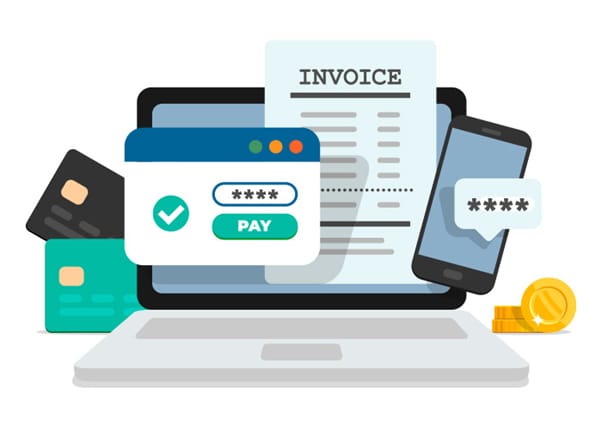Gone are the days when paper invoices, governed by VAT laws, were the go-to for tax purposes. Things have changed now with the shift in invoicing regulations. PDF invoices were once considered as a more modern solution, yet even they have evolved. Today, the e-invoices have taken over, rendering traditional methods obsolete. To know more about e-invoices, their utility, and their evolutionary journey, read on.
Why e-invoicing is important in Modern Business
The significance of e-invoicing in today’s modern business operations cannot be overstated. This method involves the electronic exchange of invoices between buyers and sellers through secure networks. It contains encrypted, machine-readable data. The adoption of e-invoicing is driven by its numerous benefits, including automated processing, secure transmission, and faster payment cycles. E-invoicing has transformed the way invoices are generated by simplifying the creation and delivery of invoices through specialized e-invoice billing software. To know more about e-invoicing software it is imperative to understand why e-invoicing holds significant importance in contemporary business landscapes;
1. From Manual to Digital: E-invoicing emerged as a modern alternative to manual invoicing, which was often tedious and error-prone. Manual invoicing consumed valuable time and resources that were prone to human error and often led to inefficiencies in the billing process. With the introduction of e-invoice billing software, firms could automate invoice generation and delivery, saving time and reducing errors.
2. Integration with ERP Systems: As businesses underwent digital transformation, e-invoicing became an integral part of their digital strategies. Integration with ERP systems allowed seamless data flow between applications which in return streamlined operations and enhanced efficiency. This integration facilitated the smooth transition to electronic invoicing and helped businesses to adapt to changing market demands.
3. Compliance and Regulatory Standards: Maintaining compliance with changing tax rules and regulations may be difficult for businesses. Manual invoicing made it difficult to comply with tax and accounting regulations. E-invoicing software automates compliance checks and ensures that invoices meet regulatory criteria. Government mandates further incentivized the adoption of e-invoicing to ensure tax compliance across all sectors.
4. Cloud-Based Solutions: The advent of cloud-based e-invoicing solutions marked a significant advancement in the field. Cloud technology enabled teams to access, create, and update invoices from any device with internet connectivity. This flexibility enhanced collaboration and productivity for businesses to manage invoices seamlessly across distributed teams.
5. Mobile Accessibility: The latest evolution in e-invoicing is mobile accessibility which allows users to access and handle invoices on the go. Mobile-compatible e-invoicing software empowers users to create, review, and send invoices directly from their smartphones. This level of accessibility enhances convenience and efficiency, thus enabling businesses to stay agile in today’s fast-paced market.
Conclusion
E-invoicing has grown as an important part of modern corporate operations. It has transformed traditional invoicing processes into efficient, streamlined operations. By facilitating electronic exchanges of invoices through secure networks, e-invoicing software enhances automation, security, and payment processing timelines. The transition from manual to digital invoicing not only minimizes errors but also optimizes resource allocation, empowering businesses to focus on core operations. Integration with ERP software ensures seamless data flow, fostering digital synergy and enhancing organizational efficiency. Moreover, e-invoice billing software automates compliance checks in adherence to regulatory standards. The advent of cloud-based solutions and mobile accessibility further amplifies the benefits of e-invoicing, enabling anytime, anywhere invoice management.
Read More: https://kongotech.org/
